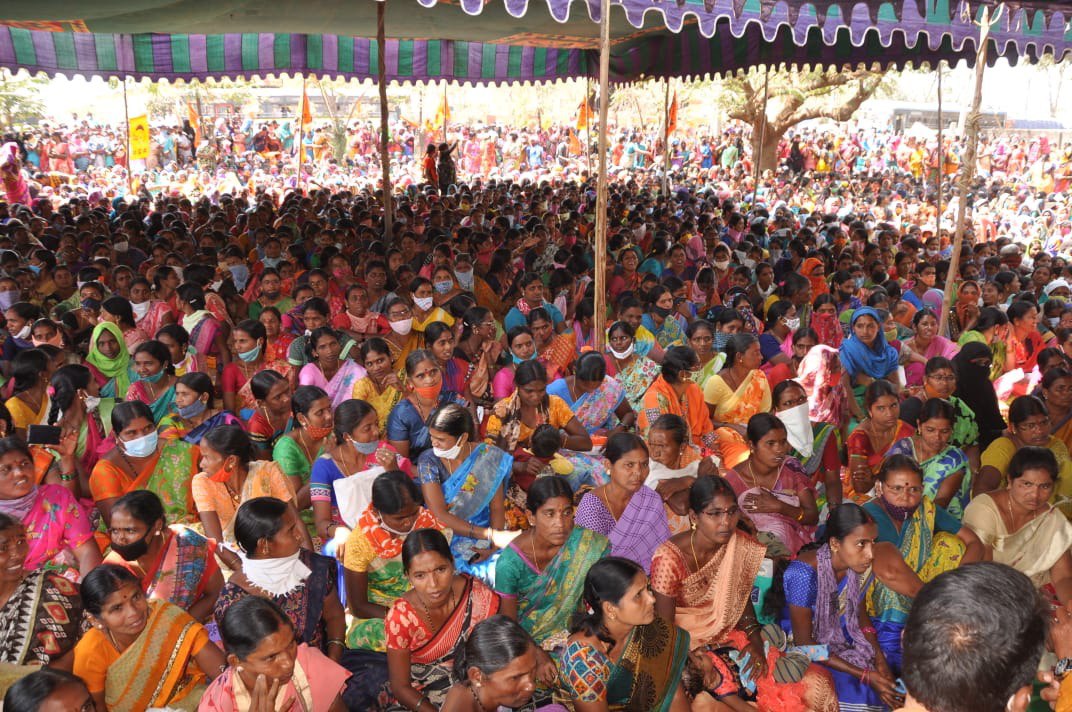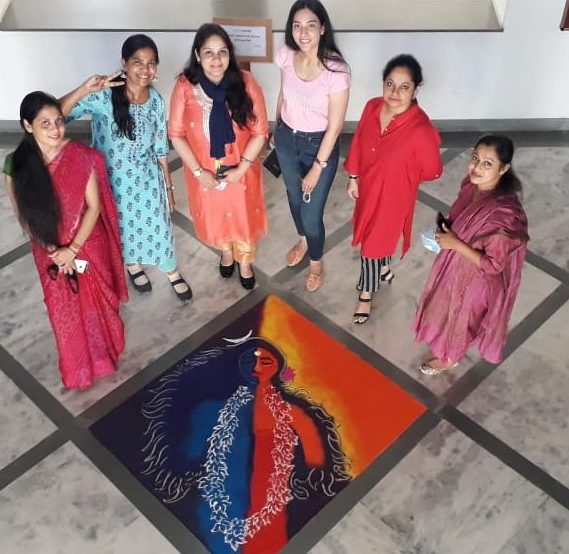
On Women’s Day, Women Beedi Workers beseech the Prime Minister to save the livelihood of 65 lakh women from extinction. The Beedi industry sustains the livelihood of rural and tribal communities since time immemorial. Women who are the primary income earners in the Beedi industry, will be forced into overnight penury if the amendments to COTPA are not rolled back.
| Over 4,00,000 Women Beedi Workers from Telangana, West Bengal, Madhya Pradesh, Bihar, Jharkhand, Karnataka and Tamil Nadu staged over 100 women’s rallies decrying the proposed amendments to COTPA 2003. |
| Over 5,00,000 women send Appeal Memos to the PMO seeking redressal. |
The Ministry of Health, Government of India, on 1.1.2021, has proposed to add several stringent new amendments to the already harsh rules of the ‘Cigarettes and other Tobacco Products (Prohibition of Advertisement and Regulation of Trade and Commerce, Production, Supply and Distribution) Act’, 2003, popularly known as Cigarette & Other Tobacco Products Act (COTPA).
The 200-year-old, native, ‘Hand-Made in India’ Beedi industry, an indigenous cottage industry, faces overnight closure should the amendments become law, putting the livelihood of over 30 million workers associated with this industry in grave peril. There are around 8 million home-based beedi rollers across India, of whom 6.5 million are women. Homemakers, mothers and grandmothers, these multi-generational women earn their livelihood rolling beedis from home while their husbands go out to work and their children attend school. With no viable, alternative employment available these women beedi workers, an icon of ‘Atmanirbhar Bharat’, fear destitution and penury, should the COTPA amendments be applied to their industry.
At the 100 plus Rallies, disconsolate women workers entreated the Government, to segregate Beedies from COTPA as other tobacco products do not generate this scale of employment, and save this indigenous, high employment-generating, Swadeshi industry. They urged the Government to reconsider the proposed amendments in the interest of the livelihood of 80 lakh beedi rollers, 5 lakh packers, 40 lakh women and tribal Tendu leaf pluckers, 30 lakh bidi tobacco farmers and workers, directly dependent on the beedi industry.
";

